Fighting period poverty: How reusable sanitary pads are changing lives in Bangladesh
Reusable, locally sourced and handmade – initiatives around making sanitary pads help to drive change in areas where menstrual products are not readily available.
Ela and her two sisters have experienced first hand how reusable sanitary pads are able to transform lives of girls and women living in the Chittagong Hill Tracts, in Bangladesh. Unable to afford menstrual products, Ela would often skip school during her menstruation, as she wanted to avoid embarrassment and teasing related to the blood stains on her clothes.
Yet, after participating in a training organised by the Our Lives, Our Health, Our Futures programme, funded by the European Union, she is now able to make her own reusable sanitary pads. Being able to access reusable sanitary pads as one type of menstrual product, has helped Ela to manage her menstruation safely and with dignity.
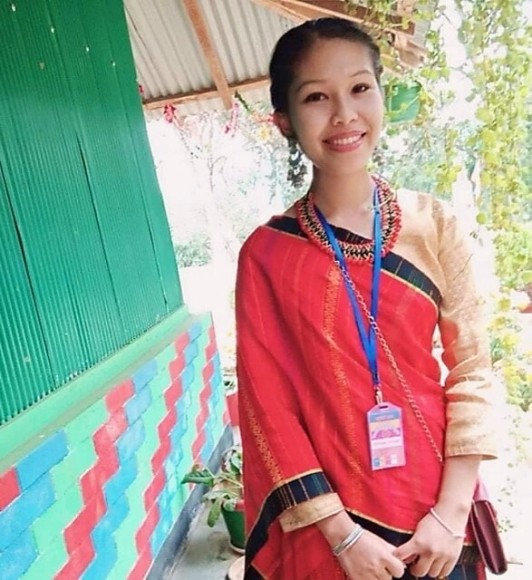
Everyone should be able to access menstrual products. Period.
Access to menstrual products is a right, not a privilege. Yet, in the Chittagong Hill Tracts, where the Our Lives, Our Health, Our Futures programme is implemented, period poverty and social taboos force many adolescent girls and young women, like Ela, to use old cloths to manage their menstruation. This can cause discomfort and affect the ability of those who menstruate to manage their menstruation safely and with dignity.
Among the ethnic ‘Jummas’, a collective term used to refer to 11 ethno-linguistically and religiously diverse groups who have lived in the hill tracts for many generations, there is still a lack of awareness around menstrual health. Menstruation is considered something to be silenced. For example, Rinu Chakma, a 21 year old girl living in the Rangamati district explains: ’We don’t have sanitary equipment in our village. We have to purchase those things from town or use cloths in our period. In our village there is only one local shop and they do not store sanitary pads.'
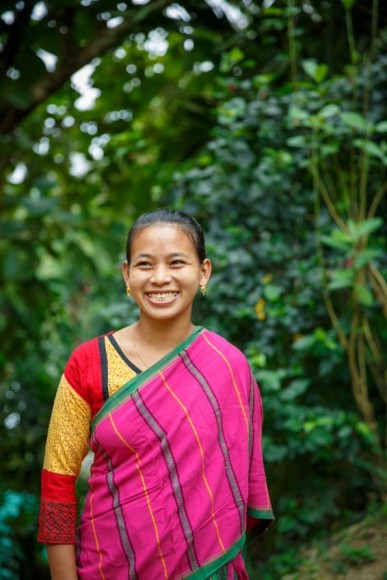
Trainings on how to make washable and reusable sanitary pads offer girls and women the opportunity to access safe menstrual protection. Advantages of reusable sanitary pads include that they offer a hygienic way of managing menstruation, reduce the health risks of unproperly menstruation management, are environment friendly, less costly than commercial sanitary pads and easy to manage. For many girls, who had no access to any type of menstrual product earlier, owning a self-made sanitary pad was a great improvement to their lives. It results in greater flexibility to lead their lives, and reduces fear to participate in activities such as school or social gatherings.
Besides making pads, girls were also trained on general hygienic practices and which hygiene measures they should take into account when washing, drying and storing their menstrual product. Speaking to this, Jeny Bawm, a 25 year old girl who participated in the session mentioned: We are learning and knowing some new things (…), like what is normal and abnormal menstruation, why we need to dry menstrual cloths in open and sunny space, how to wash menstrual products and how to preserve them. This kind of information was unknown to me, I share this with my husband and older sister. Taungya [involved CSO] also arranges meetings with mothers and community leaders, they also share this information with them. So I am hopeful that if this kind of information sharing continues we will become healthy and will be able to reduce social taboos from our society.’
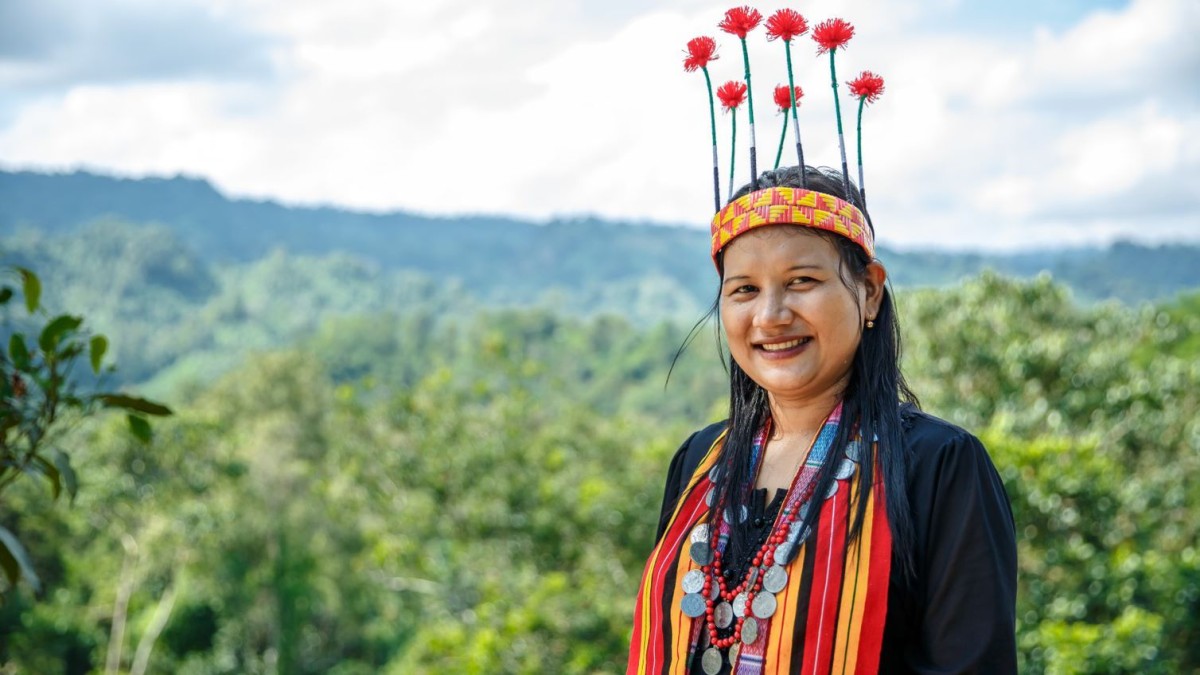
Acceptability of menstrual products
Traditionally, women from indigenous communities do not make use of any menstrual products during their period. It is therefore safe to say that some of the staff members where a bit nervous when introducing sanitary pad making sessions to the programme. 'First, I was not sure whether the guidelines would be implemented in a smooth way. I had a fear that the girls would not be comfortable with the materials. But the interest of girls was great and really amazed me,' says Rimi Chakma, who works as master trainer in the programme.
Overall, the sessions were really well attended by participants of the programme. Even women and girls who were not part of the girl clubs expressed their interest to join, and when possible were given the space to do so. Men and boys were also curious, especially staff members from CSOs involved in the project. They were able to learn how to sew during the sessions and thought this skill to share with their wives and sisters, so they could also start making their own pads.
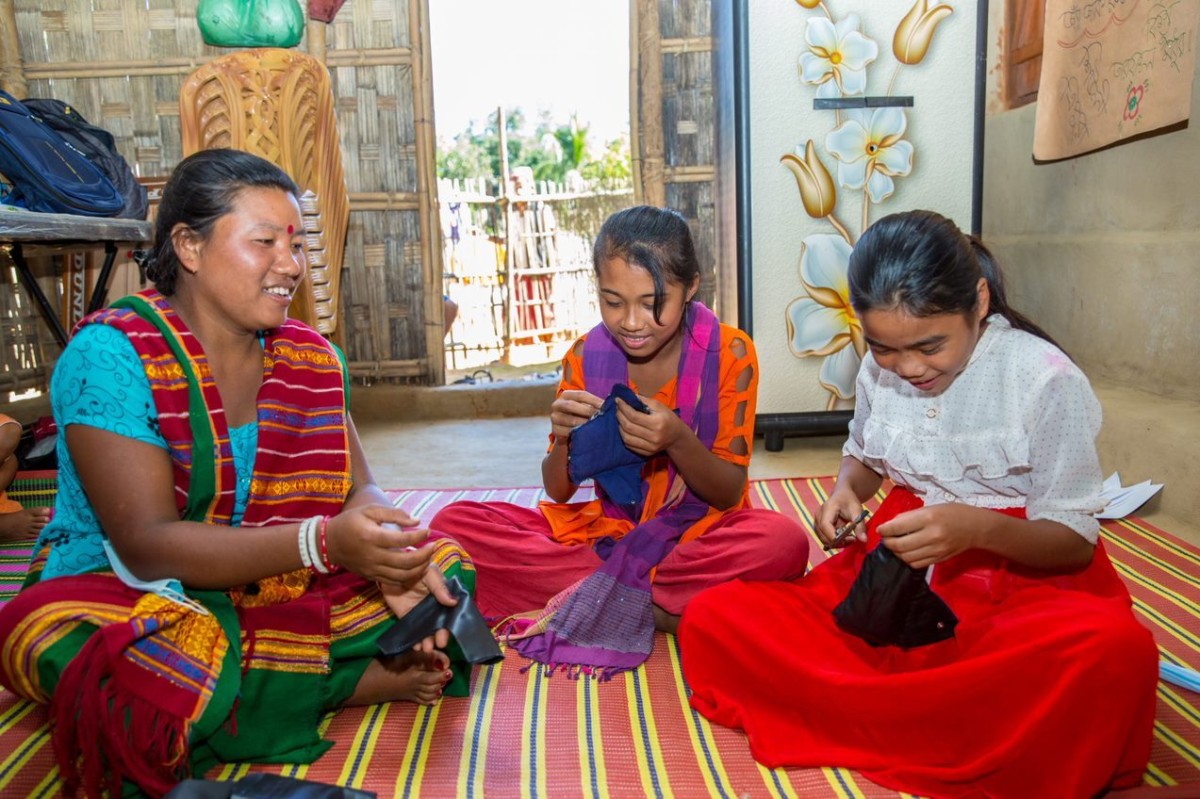
Opportunities for entrepreneurship
Some girls expressed an interest to make more pads and sell them to create a small income for themselves and their family. Yet, for those living in rural areas it has been particularly challenging to access the right fabric for producing the reusable pads.
Waterproof materials are costly and not readily available at local stores, which means that girls have to travel to the city in order to buy them, explains Sumit Banik, master trainer in the programme. ’The sanitary pads have a huge marketing potential, but the Chittagong Hill Tracts is a different context. It is complicated to find materials that are comfortable and locally available at a low cost’, he tells. Based on girls’ feedback, several handouts have therefore been developed which includes a list of local shops where girls can access the right type of material.
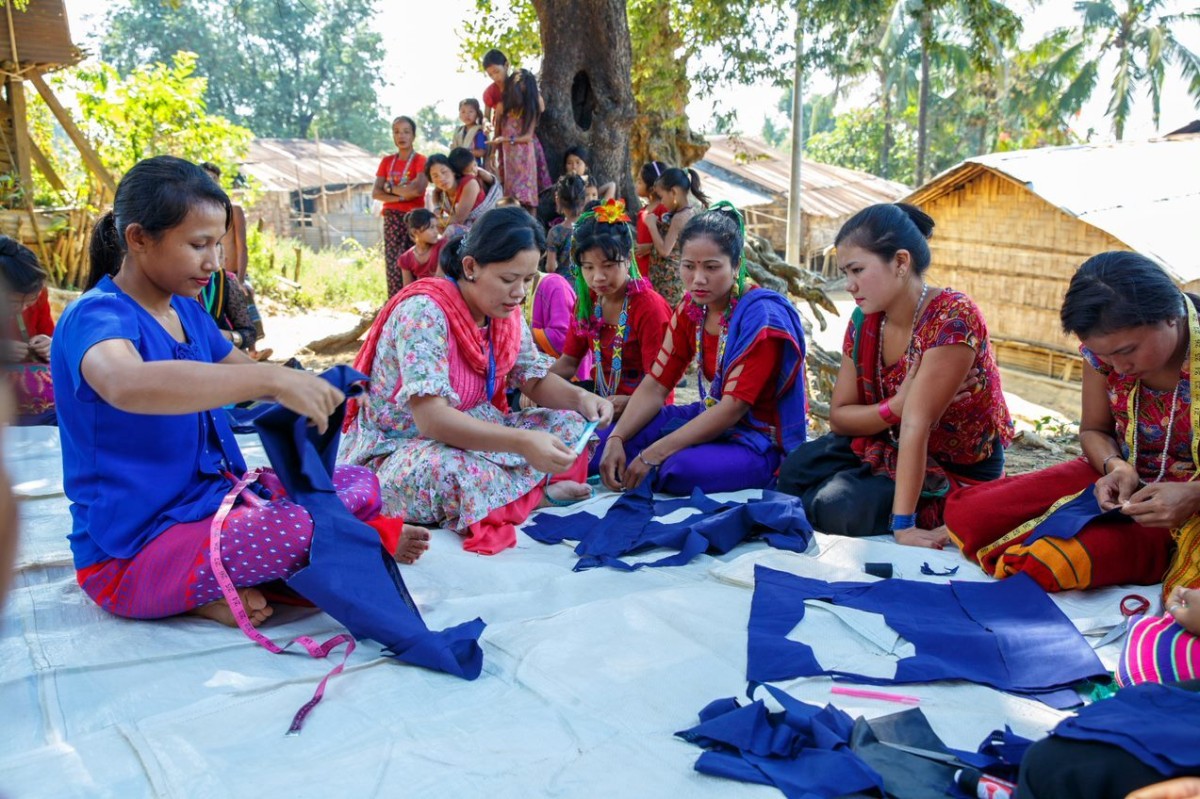
Improvements and ambitions for the future
The purpose of the sessions was to introduce the option of using a reusable sanitary pad to girls as one type of menstrual health product. The Our Lives, Our Health, Our Futures programme aims to increase the choice and access to menstrual products, by putting women and girls’ priorities and needs front-and-centre. However, it is important to note that the reusable sanitary pads do not work for everyone.
It has been challenging for some girls to take their measurements and estimate which pad size suits their body shape, explains Mahbuba KumKum, programme manager at Simavi. Although the pads were made available in three sizes (small, medium, large), some younger girls in the age group 10-14 years struggled to choose the right size, which made the pads less comfortable. Moreover, the guidelines in the sessions were merely focused on those girls and women who use undergarments. From discussions with women and girls however, the project team learned that in some rural areas, women do not wear any undergarments, which means that the sessions were less relevant for them. Coming up with alternative products that also work for these women, is something the programme wants to improve on.
Finally, access to water and sanitation services are vital for people who menstruate. Clean water is essential in maintaining hygiene around menstruation and menstruation-friendly toilets help those who menstruate to carry out their preferred menstrual practices. Yet, several communities living in the CHT have limited access to Water, Sanitation and Hygiene (WASH) services and facilities. During the sessions, some girls raised that they were not able to wash their sanitary pads with clean water, as they had limited access to safe water points. In future sessions, the various needs of the participants around WASH facilities will therefore be a special point of attention.
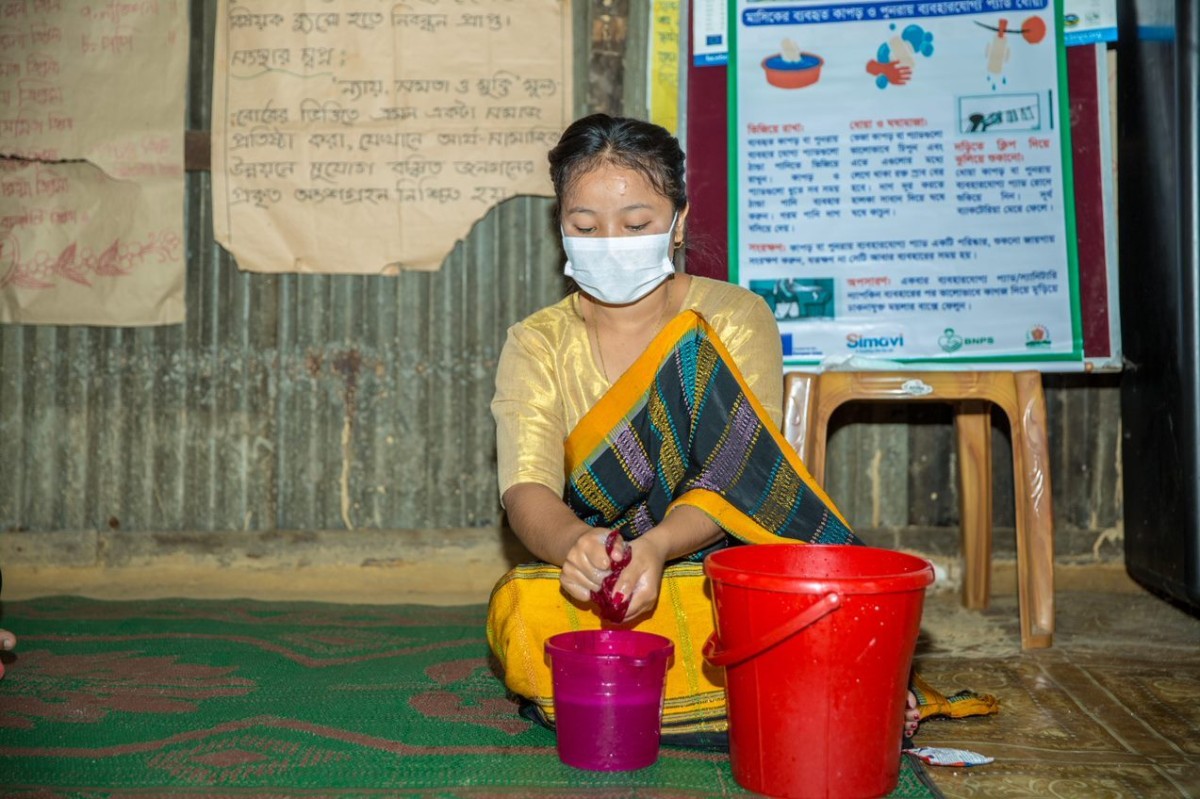
An example to be followed
Overall, the involved CSOs and programme staff felt very proud to be part of the sessions on making reusable sanitary pads. In some areas, CSOs had local government officials joining the activity to observe and to share some words of appreciation and encouragement. Also, they gained the interest of other organisations in the area, who were eager to learn how they could organise their own sessions on making sanitary pads. ‘’I feel so happy that the guideline is actually working. Through the training, some girls are breaking different kind of community taboos’’, said master trainer Rimi Chakma. Sumit Banik felt also proud to be part of the training and mentioned: I feel proud to be a member in this whole process of creating affordable and low-cost reusable sanitary pads. As a man, it will change my mindset and I will share this idea with project staff, in girls clubs and at grassroot level.’’
10 CSOs have conducted trainings on making reusable sanitary pads in all 300 girls’ clubs in 2021. A total of 11,279 girls were trained in making reusable sanitary pads in 2021.



